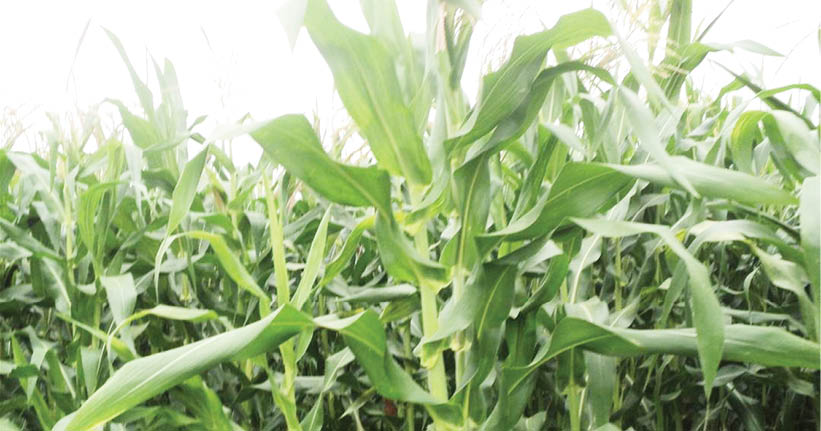Why Benue maize farmers are struggling
Maize farmers in Benue State are struggling for considerable harvest this year after over five weeks of dry spell accompanied by pest infestations that devastated their farms across many local government areas of the state. The farmers, who spoke to our correspondent in Makurdi from their various locations, blamed the challenges faced this year on […]

TELA maize
Maize farmers in Benue State are struggling for considerable harvest this year after over five weeks of dry spell accompanied by pest infestations that devastated their farms across many local government areas of the state.
The farmers, who spoke to our correspondent in Makurdi from their various locations, blamed the challenges faced this year on climate change and pest infestations which they said wreaked havoc on their crops, resulting in a drastically reduced harvest.
Amina Ede, a maize farmer in Ogobia —Ugboju, Otukpo Local Government Area of the state, said from the onset of planting in late May, everything went on well until in July when the rain ceased abruptly, causing the crop to whither midway.
“I expected a bountiful harvest from my maize farm but the cessation of rain for over five weeks in my area affected the growth. In the end, I had poor harvest.
“Besides, there were pest infestations on the maize. I felt really bad watching how the dry spell ruined my maize field,” Ede said.
Similarly, Iorter Bago, who cultivated a maize farm in Adikpo, Kwande LGA, decried the aftermath of climate change which in his estimation impacted negatively on his harvest.
Bago noted that his large farm was capable of producing at least 35 bags of maize but he could only get 27 bags at the end of the day.
He said, “When I went into farming maize this year, I hoped for over 35 bags at the end of the harvest, but this climate change I have been hearing about affected my farm in July/August. I didn’t get up to what I expected.
“The cost of inputs and labour was too high this year. There was a lot of challenge with growing crops but the climate change was the worst. However, I was able to control the pest infestations on my field to an extent.”
A big maize farmer in Makurdi, the Benue State capital, Vitalis Tarnongu, also faced the challenge as climate change and pest infestations affected his farm during this year’s harvest.
“Maize did not really do well because of the climate change,” he lamented.
Tarnongu described how the maize crop began producing cobs, only for the rain to abruptly stop.
He explained that the sudden drought, coupled with intense heat, left over 30 percent of the maize planted in jeopardy.
The challenges didn’t end there, Tarnongu said a surge in pest activity, worsened his plight.
“We have also had to deal with insects that capitalised on this heat to attack the crop, rendering farmers helpless,” he explained.
He added that the pests, emboldened by the drought conditions, became a formidable enemy for farmers across Benue and the North-central region.
Tarnongu said he remained hopeful despite the bleak situation and as harvest season for the dry maize now approaches, his focus has shifted to minimising post-harvest losses, which is a crucial step to ensure that whatever survives makes it to the market in good condition.
“We are hoping that during the harvest, we will be able to reduce post-harvest losses so that it does not further affect the availability of good maize in the market,” he stated.
His determination, no doubt, reflected the struggle of Benue farmers to adapt and persevere in the face of a changing climate.
He worried, however, that most farmers suffered heavily because they do not adapt to best agronomic practices.
Meanwhile, the Director- General of the Benue State Council on Climate Change, Dr. Daniel Mailumo, recently commended the state governor, Hyacinth Alia, for his foresight in changing the nomenclature of the Ministry of Water Resources and Environment to include Climate Change and also for creating a department of Climate Change at the ministry as well as the council on climate change.
Mailumo thinks that the move by the government was apt and came at the right time.
He noted that climate change can crumble the livelihoods of individuals and nations if no action is taken, adding that the Benue State government has long moved from the climate rhetorics to climate action.
Therefore, for farmers in Benue state, often referred to as the “Food Basket of the Nation,” who are grappling with the harsh realities of climate change, occasioned by the severe dry spell which has led to a substantial reduction in this year’s maize harvest, the best is yet to come.
No doubt, the plight of maize farmers in Benue indicated the urgent need for more robust support systems to help them cope with the effects of climate change just as a growing call for improved access to climate-resilient seeds, better irrigation infrastructure, and effective pest control measures cannot be overemphasised.
Some of the farmers have already argued that without these, the region’s agriculture, and by extension, the country’s food security, will remain vulnerable to the increasingly unpredictable weather patterns.
In fact, Tarnongu’ s story is echoed by many farmers across the state, all of whom are grappling with the dual challenges of climate change and pest infestations. The situation is dire, and the reduced harvest could lead to higher maize prices and food shortages in the state and the country at large.
To this end, as Benue farmers continue to navigate these challenges, their resilience and adaptability will be key to sustaining maize production in the face of a changing climate.
